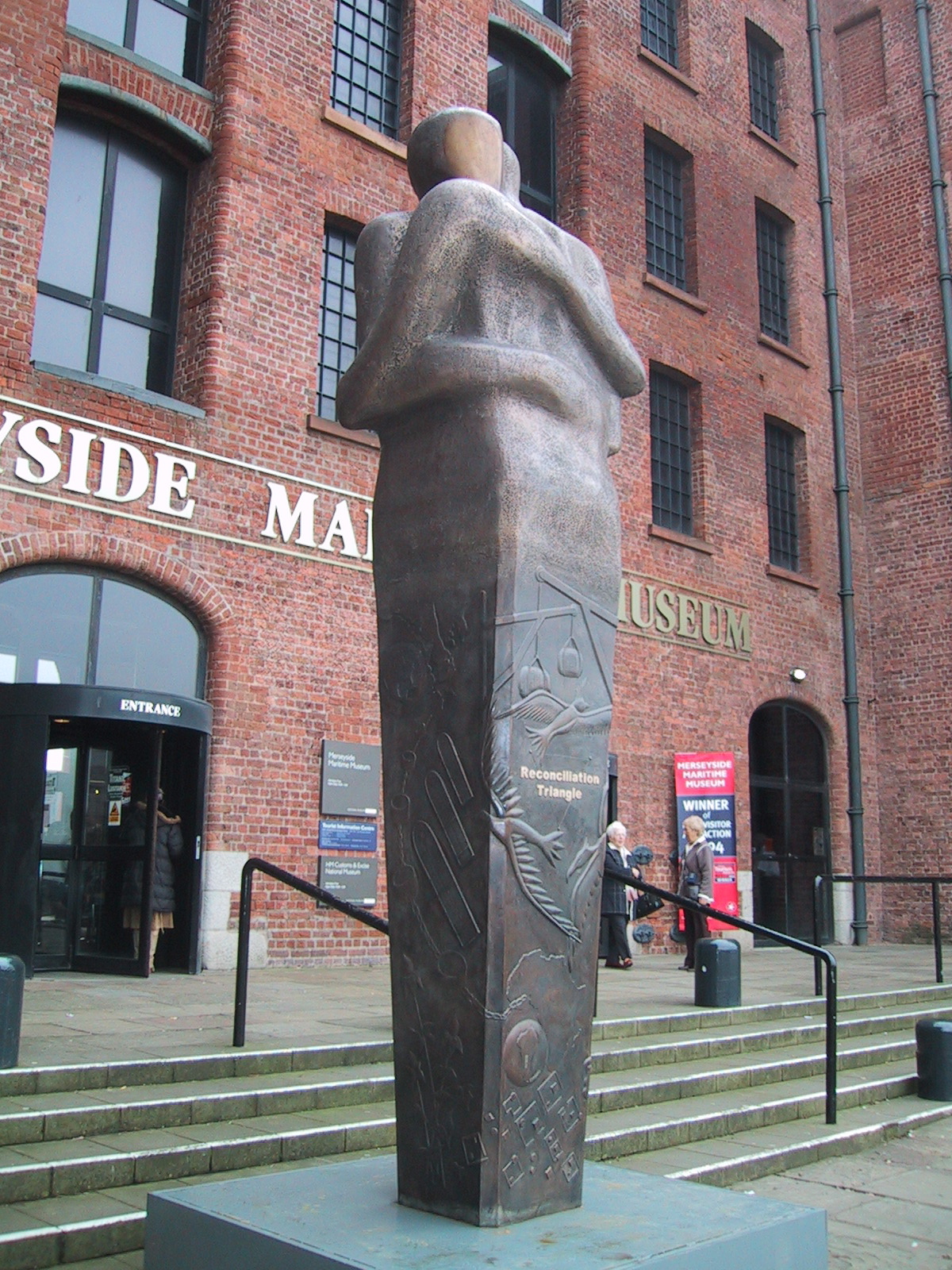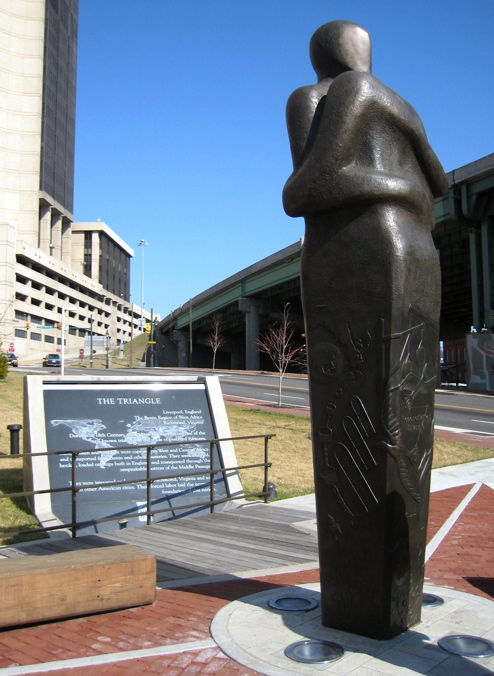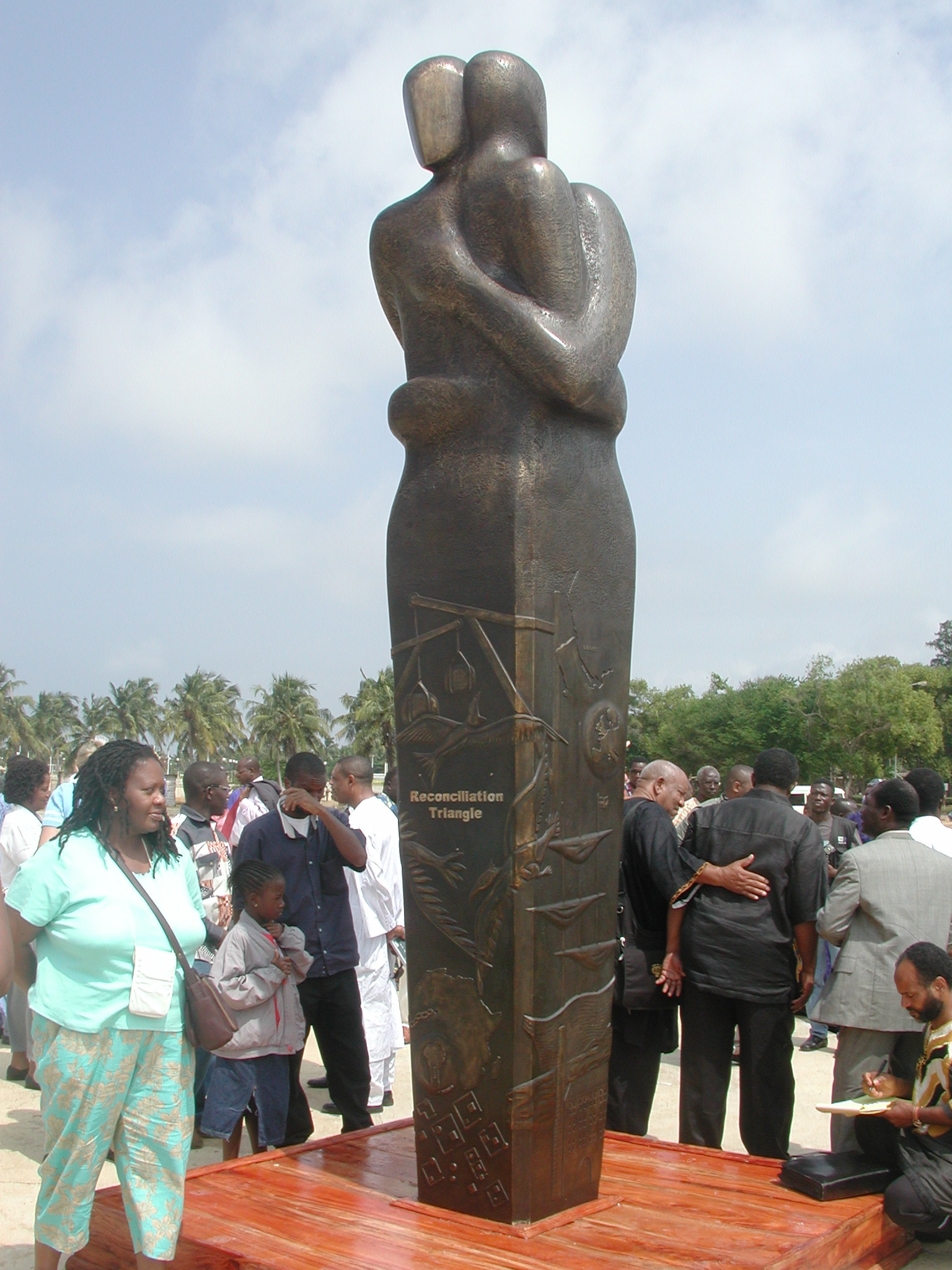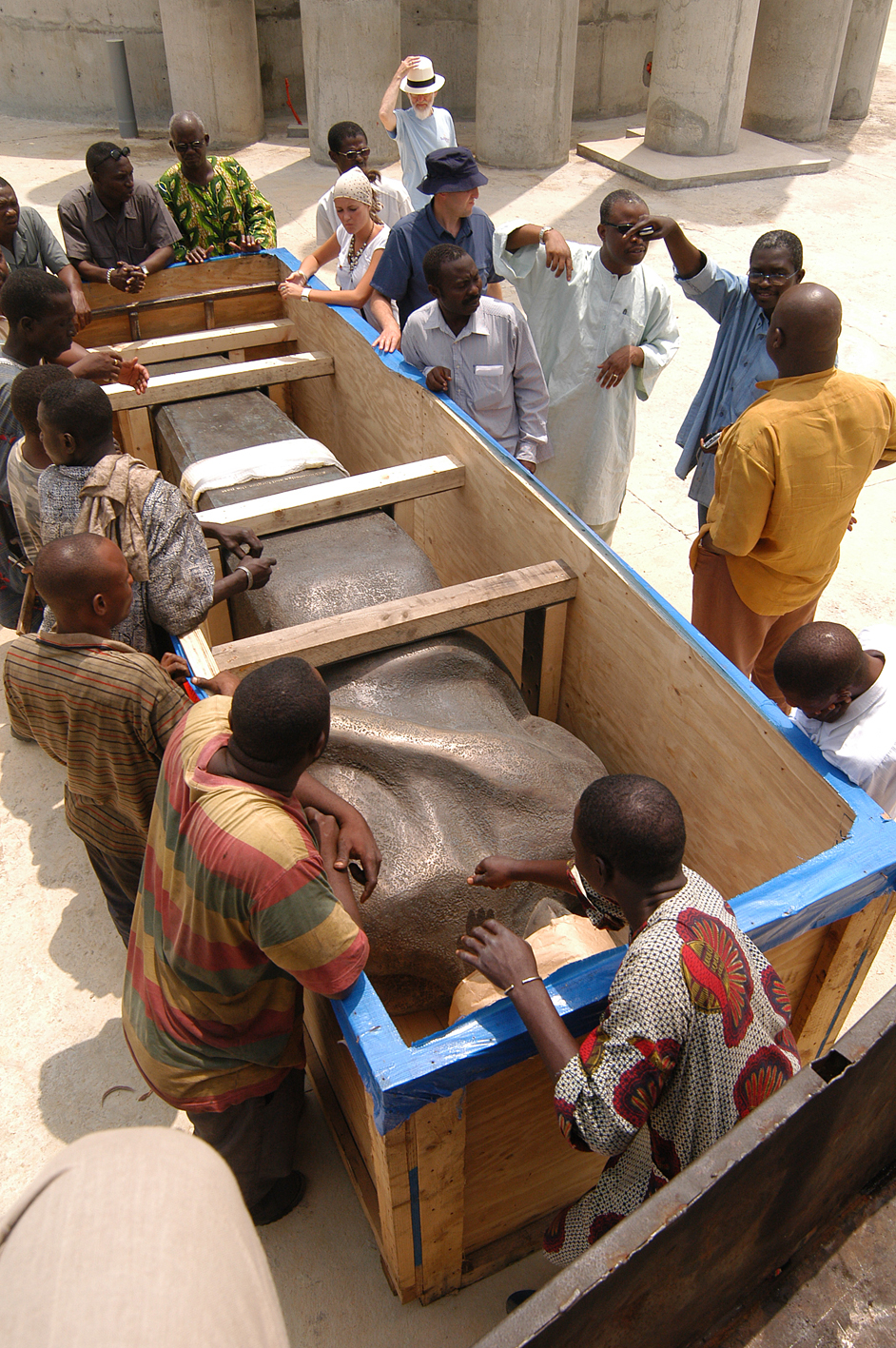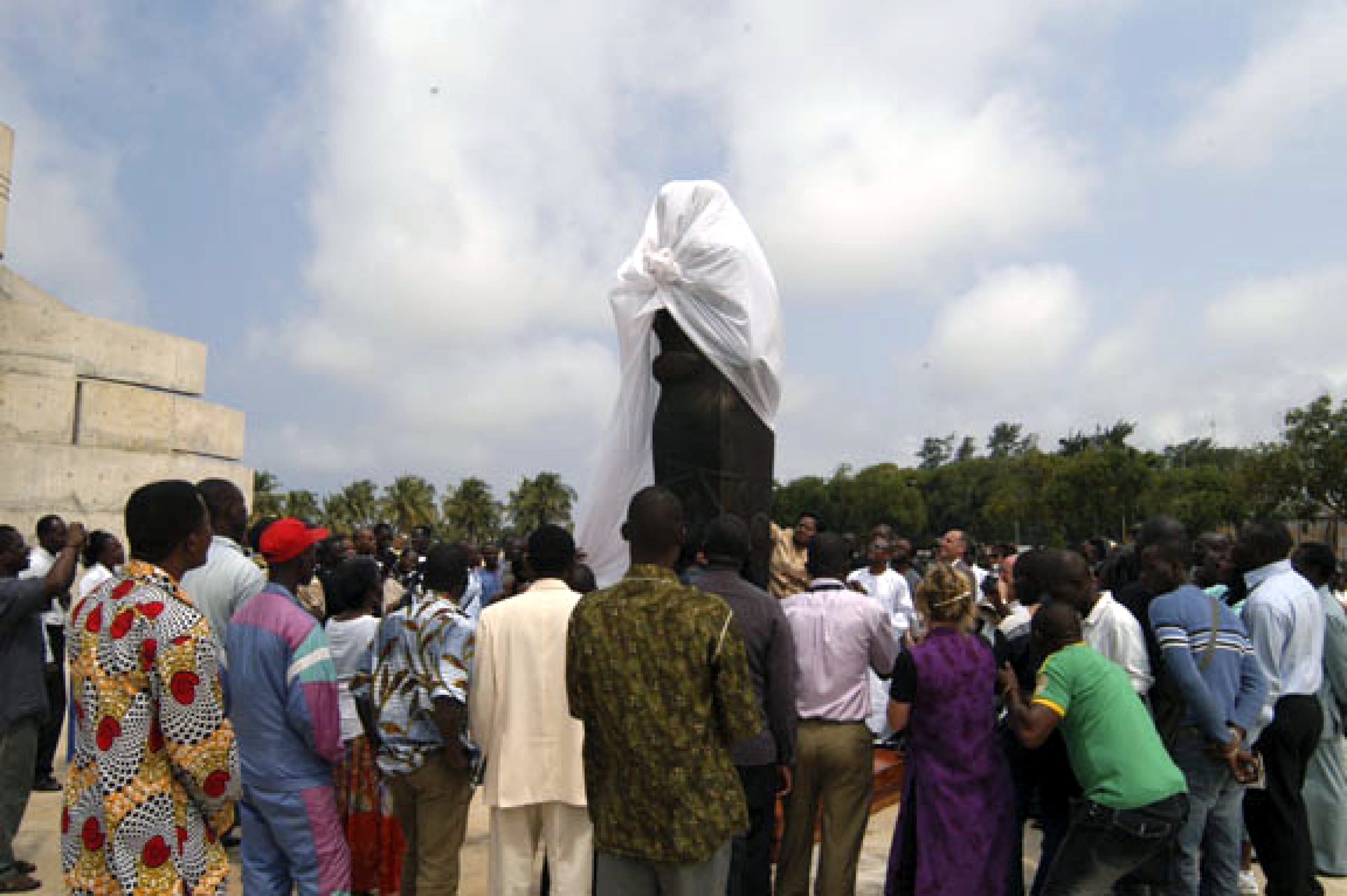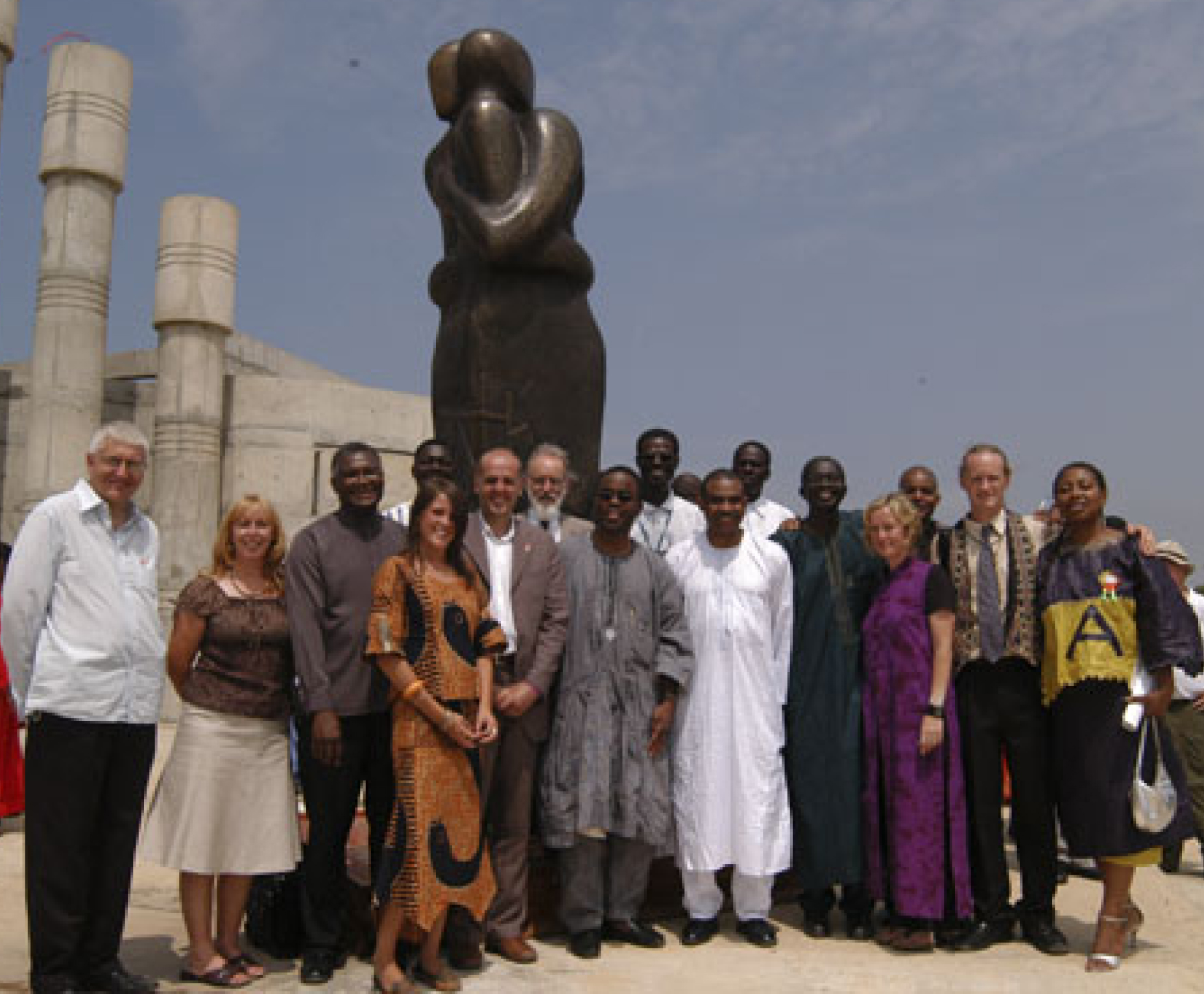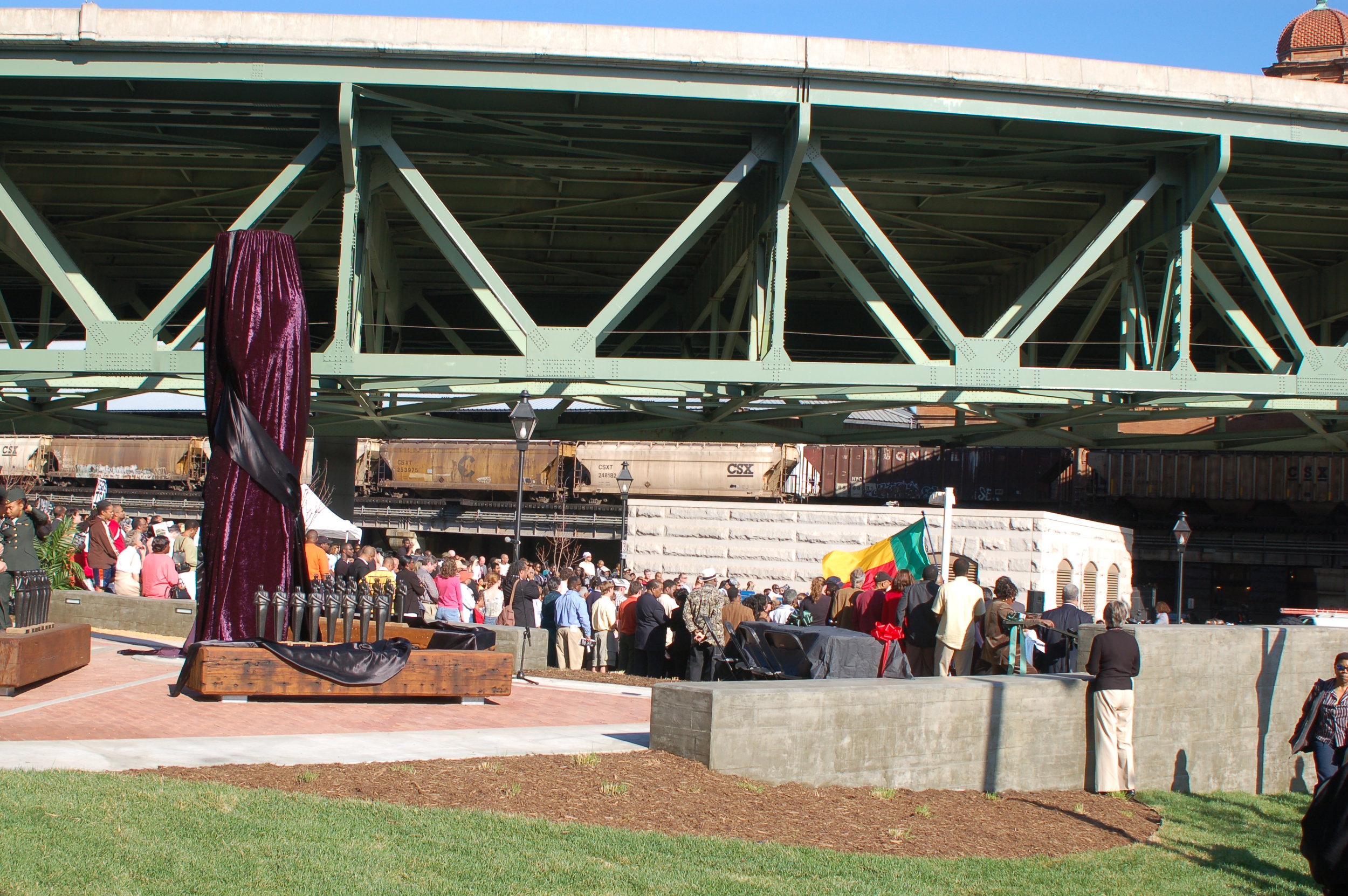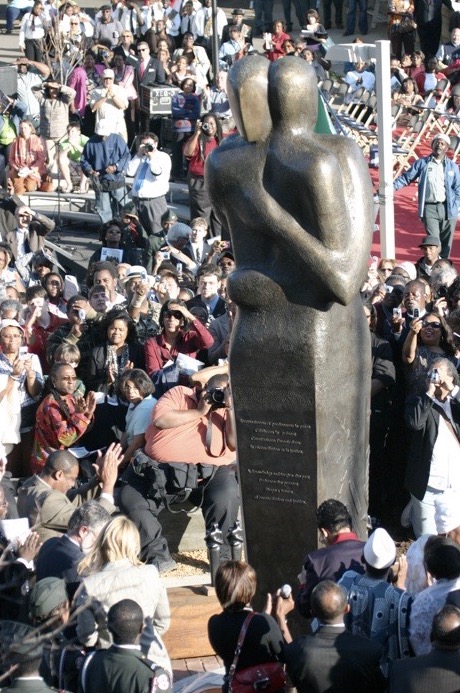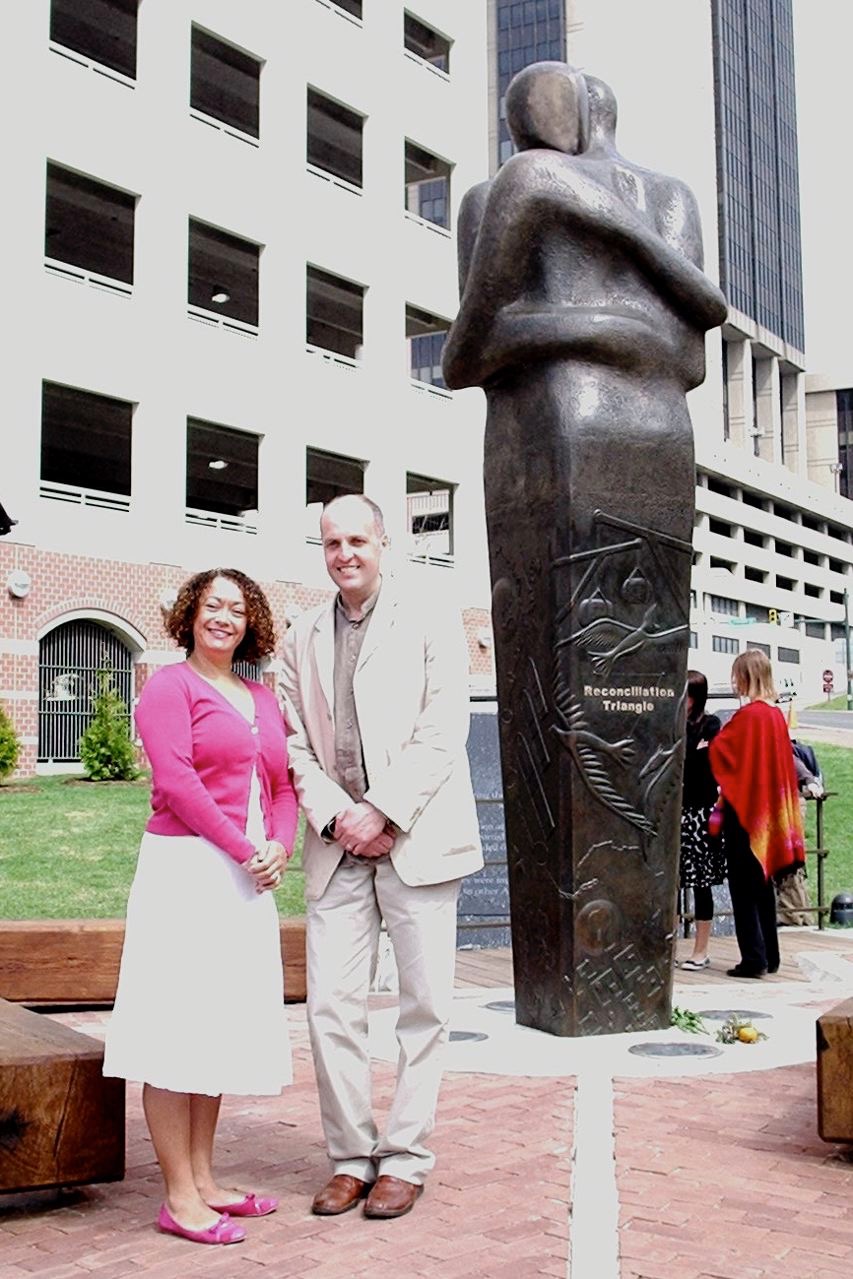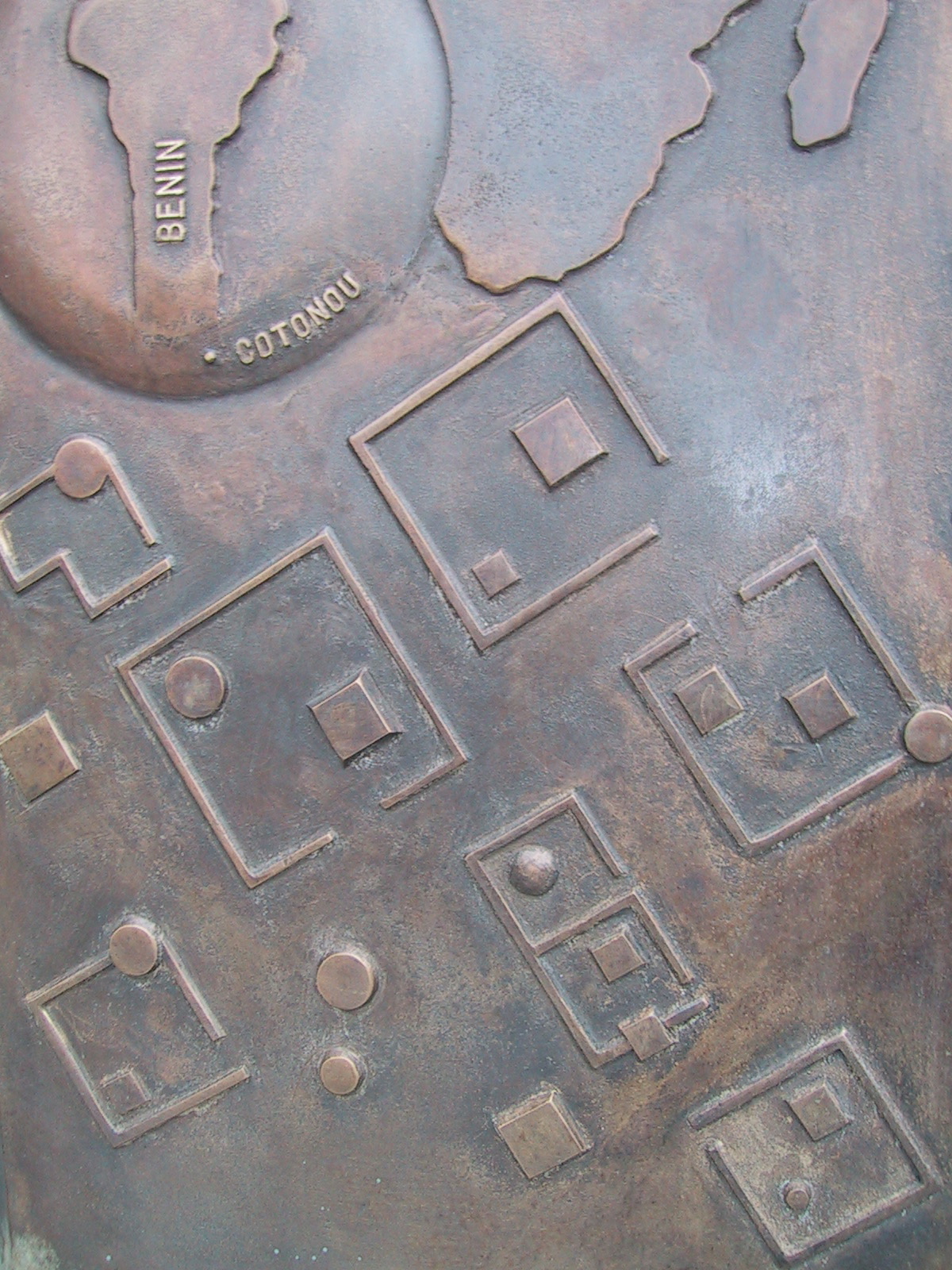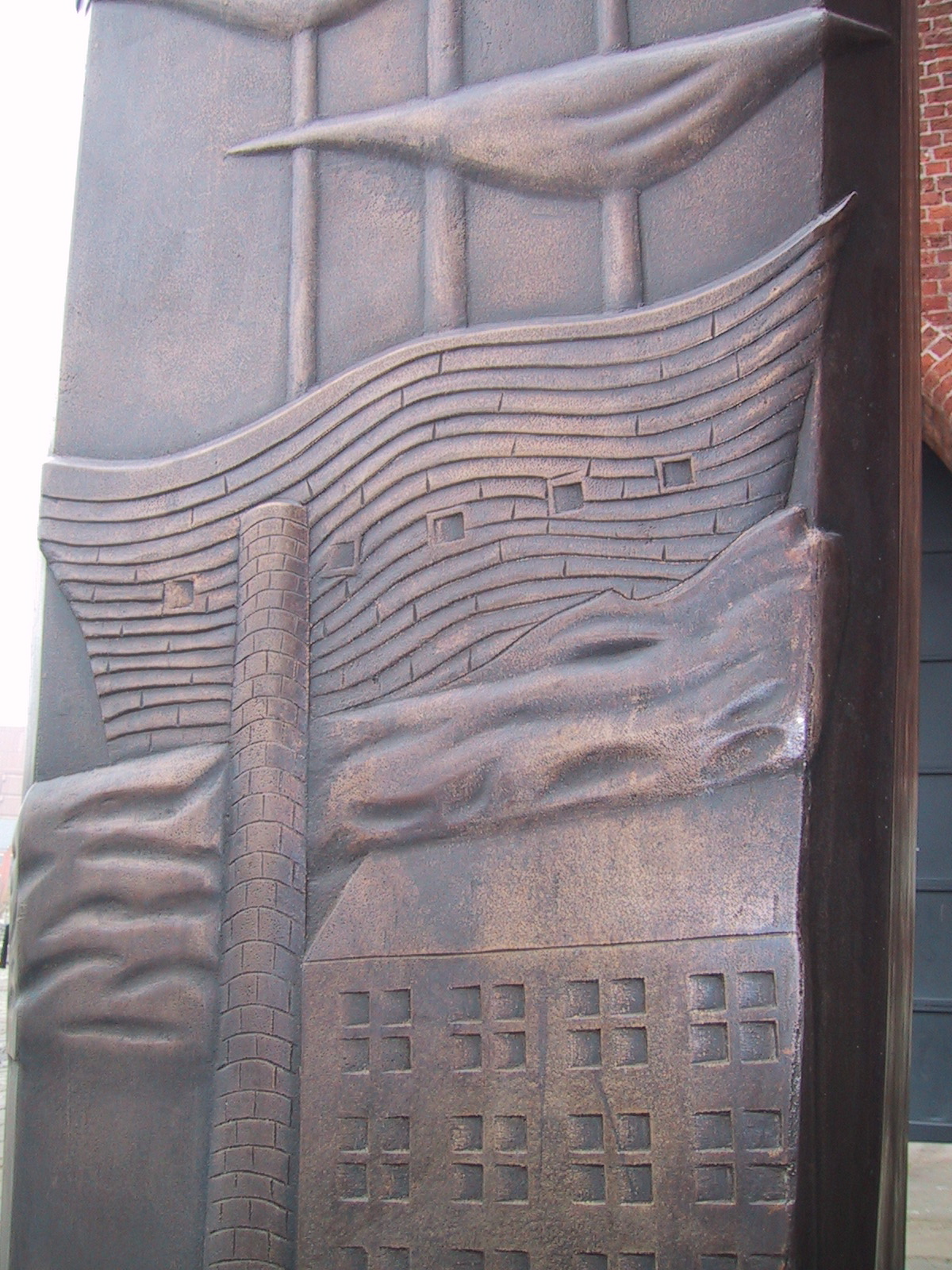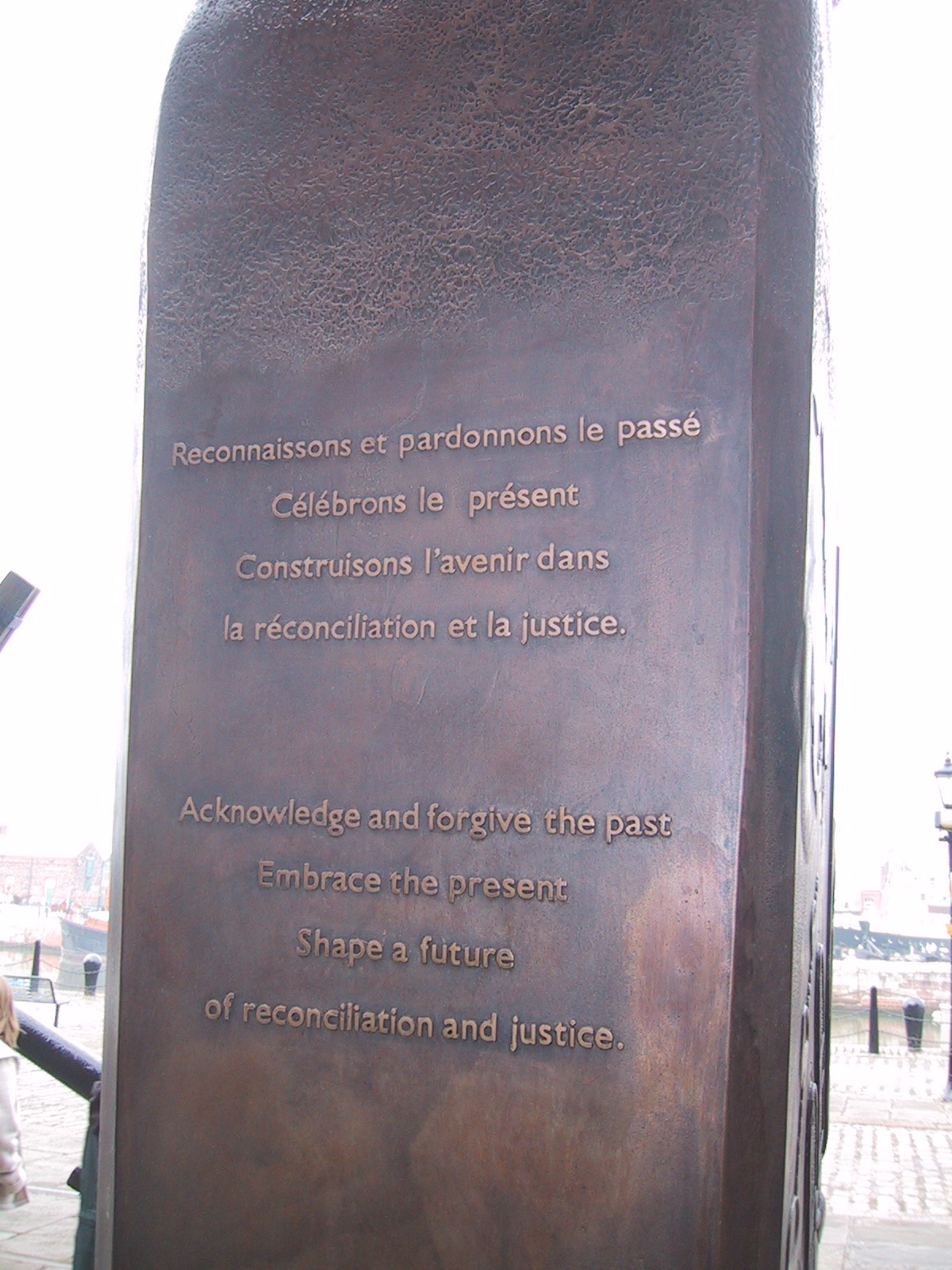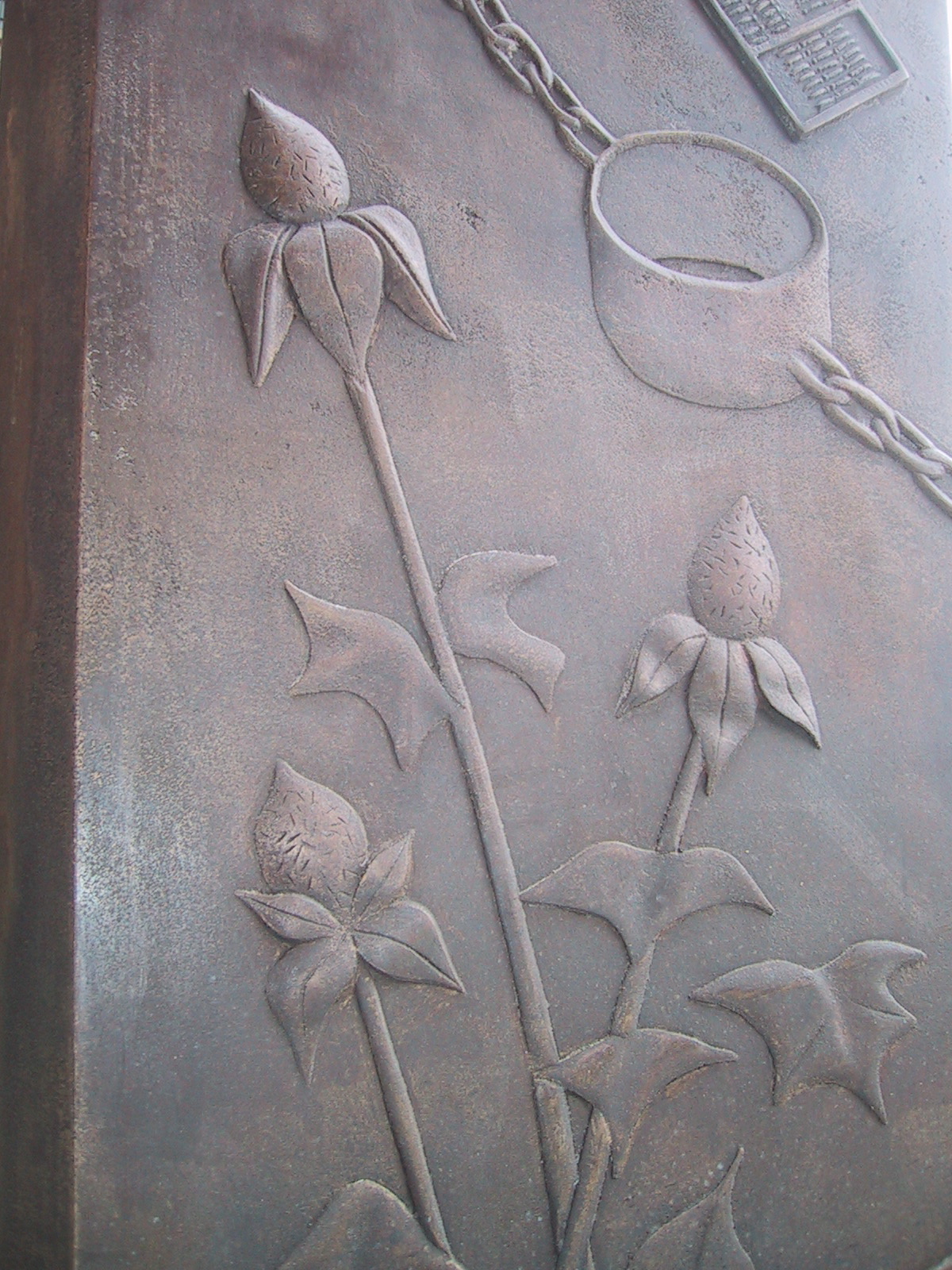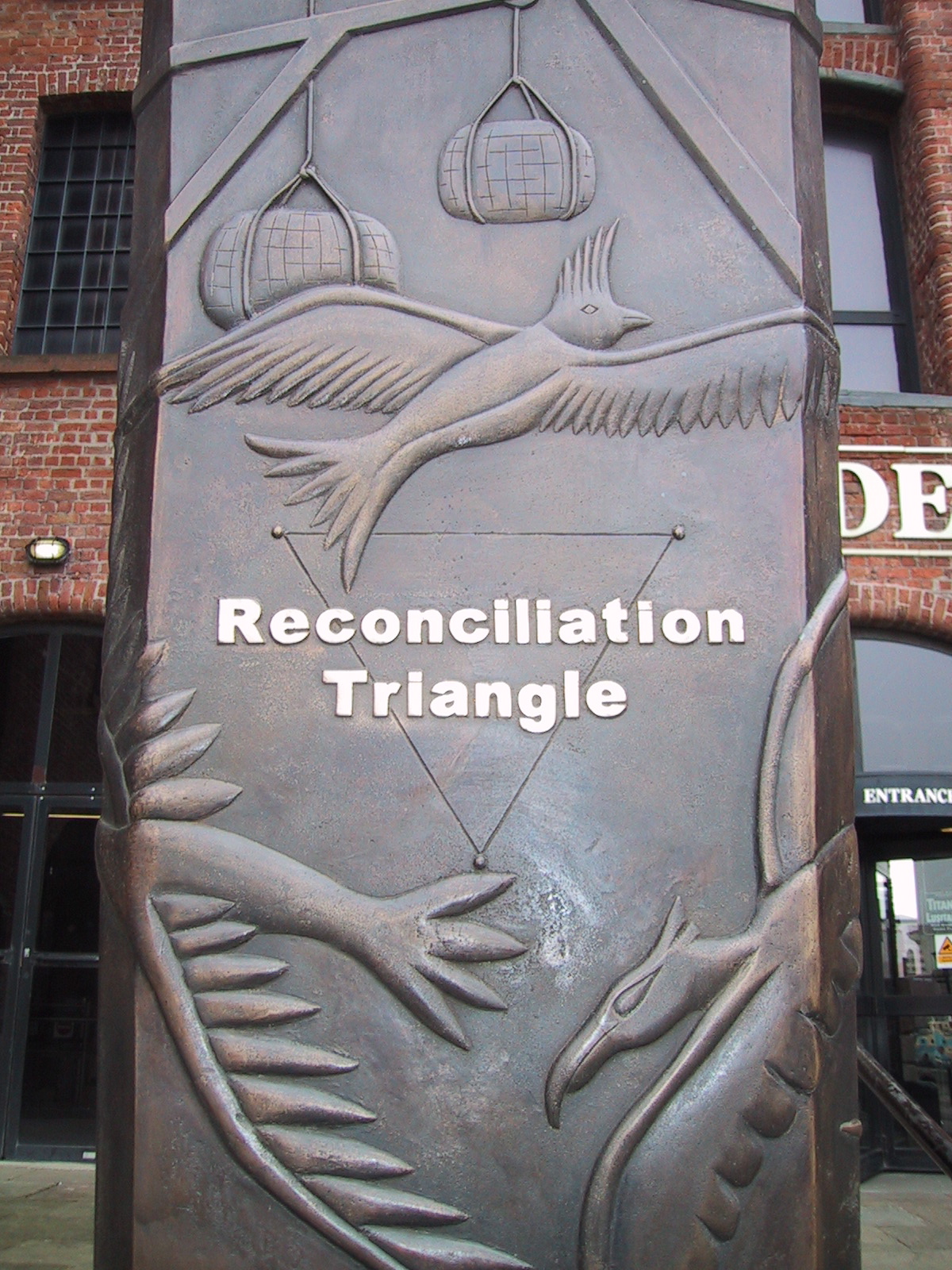RECONCILIATION TRIANGLE
NAME : Reconciliation Triangle DATE : 1989, 2005 & 2009 CLIENT : LIverpool City Council, City of Richmond, Virginia, Republic of Benin Government LOCATION : Liverpool, Richmond Virginia, Benin Africa PARTNERS : Leander Foundry, Reconciliation Trust
The original Iron Reconciliation sculptures, erected in 1989 in Liverpool, Glasgow and Belfast are a powerful symbol of the way in which sectarianism can be overcome through the solidarity and youth of these three great cities on the Irish sea. See Reconciliation Project
These new Reconciliation Triangle bronze sculptures are identical apart from the addition of bronze low-relief designs, reflecting images and thoughts on the slave trade and its effect on the peoples of Africa, the Americas and Europe.
Initial design work was undertaken by a group of young people in Liverpool, working closely with Garry Morris, the curator of the world famous Liverpool Maritime Museum Slavery Exhibition, and were completed by selected young people from Benin and Richmond. The final sculpture, based on the designs was finished with the help of sculptor Faith Bebbington. The sculptures were then cast in bronze and shipped to Benin and Richmond. It was intended that in Liverpool the bronze reliefs would be mounted and exhibited adjacent to the existing Reconciliation statue.
BENIN
RICHMOND
DETAILS
“The statue of two figures in a close embrace, by Liverpool artist Stephen Broadbent, is one of three identical monuments now in place at each point of the triangle. It stands at the heart of the business district, in a specially designed plaza. Water from a cascading fountain flows over a map of the slave triangle. An inscription describes the suffering of the millions of Africans who were transported from their homeland. It concludes, “Their forced labor laid the economic foundations of this nation.”
Ten years of coordinated efforts by Hope in the Cities teams in Richmond and Liverpool, working with both city governments, as well as visits to Benin, have played an essential role in facilitating the Reconciliation Triangle project. The Liverpool delegation spent several days in Richmond following the unveiling ceremony, to exchange experiences of honest conversation and trust building. Educators in public and private schools in Richmond hope that, by linking students with their peers in Benin and Liverpool, the Triangle can help to overcome one of slavery’s legacies – the prevailing racial and economic separation in the region’s schools.”

